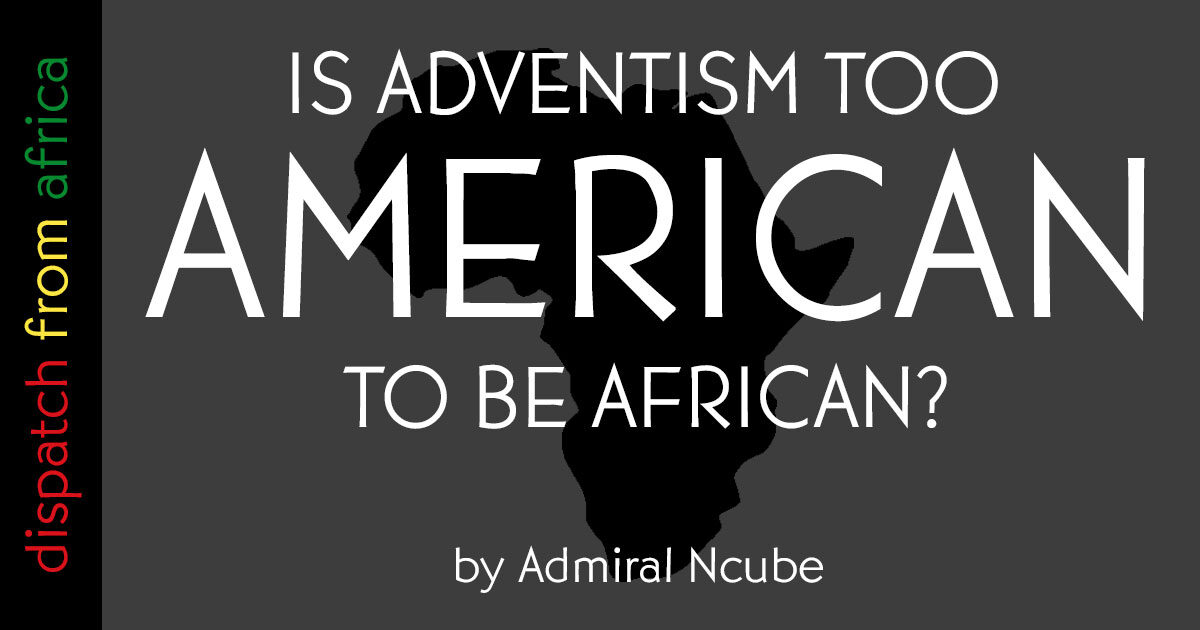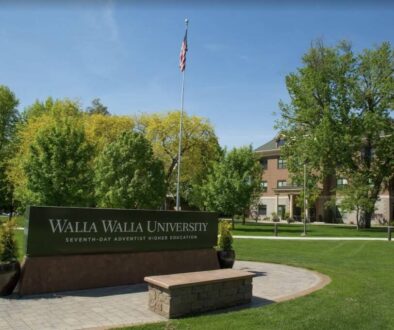Is African Adventism a Myth?
by Admiral Ncube | 24 July 2025 |
In early 2022 when the Ukraine war erupted, Adventists were inundated with calls from church leadership to pray for and support affected Ukraine. This was followed by a decision by the then-church leaders to attach Ukraine to the General Conference in April 2022.
Nothing could be more shocking for Adventists in the global South who had already been contending with conflicts in Yemen, Myanmar, Syria, South Sudan, Ethiopia, and Mozambique.
None of us could recall any special call for prayers for our countries devastated by conflict. “Why Ukraine?” was the question that never got any response.
As I spoke with Adventist friends across the continent, it was clear the exceptionalization of Ukraine was exposing issues of discrimination, white bias, and exclusion in the church. The call for prayers from Ukraine was marred by the brazen disregard of reports of the inhumane treatment of African immigrants in the same country. For many, it appeared as if God were only concerned about the conversion of Africans, and not their wellbeing.
Not only did it normalize tragedy for people of colour, but it validated the notion that our place in Adventist eschatology is non-existent. In the traditional Adventist reading, it seemed as if not all tragedy is the same: based on skin colour, some tragedies are more ominous than the others.
While conflict is never celebrated, for a continent that carries at least 48% of the church’s membership this bias fueled resentment.
An American pope
As if it were not enough, then came the excitement around the election of an American pope. Across global Adventism this appeared to bring a renewed sense of urgency. Renowned American preachers such as Doug Batchelor and John Lomacang took to social media to share what they termed “present truth”: an American pope was the missing piece in their end-time puzzle, and we were now on the verge of a stupendous crisis.
The nationality of a pope had become consequential to the Adventist prophetic scenario.
The excitement around Pope Leo’s nationality came as a surprise to us here. Strangely, it now appeared as if only an American will and can ensure the fulfillment of prophecy! This was being proclaimed as the Adventist message—but in fact, it was nothing but American exceptionalism infused with attitudes inherited from 19th-century euro-centric biases!
Of course there are some Adventists in this part of the world who grabbed onto the excitement and echoed the same message. For them this was a historic moment, a path towards prophetic fulfillment. For them, Adventist eschatology and apocalypticism had been given a new lease of life.
But for others, like me, this was another veiled validation of American exceptionalism dressed in prophetic faithfulness. Those of us who contested the prevailing prophetic excitement were branded as unserious and even anti-Spirit of Prophecy. When we questioned people’s anxiety about the nationality of the pope, we were labeled scoffers.
Prophecy without conscience
A reading of eschatology that invalidates the agency of Africans is rapidly becoming a point of contention here. There is a growing skepticism over the America-centric eschatology, and the universalization of American problems. Sunday laws are thought by Africans to be just an American problem, irrelevant on a continent pushing back at western dominance and United States hegemony. The prospects of religious legislation around a day of worship aren’t an immediate concern for African Adventists.
What I am seeing is a growing dissatisfaction over a reading of prophecy that is devoid of social consciousness. As a friend of mine put it, we are told to expect that the three angels will land and challenge all constructs of injustice and oppression in the church and in society. Meanwhile, we Africans are always being told to pray for tragedy befalling other races in other parts of the world, while ours are being ignored.
At a time when Christianity in general is more southern than northern, it defies logic to be told to look for signs of the times in another part of the world. No matter how much the church regurgitates lessons and resources to reinforce the traditional euro-centric reading of prophecy, many of us Africans are growing less interested in them. It’s not that we do not love prophecy, but dwelling on narrow religio-centric concerns borrowed from a world that no longer exists is a waste of our time.
Renegotiation?
One Adventist friend I spoke to about this felt that Adventist identity cannot be renegotiated beyond American thinking and ways. The implication is that an African has the double burden of trying to fit into another culture first before being African. It is one thing to celebrate the 48% contribution to global church membership—but without confronting white supremacy and eurocentrism Africans will continue to be reduced to being gatekeepers of an outdated Adventism on behalf of nostalgic westerners.
As long as American culture, attitudes, and ways are conflated with Adventist identity, then African Adventism is just a myth. An African cannot be an Adventist. Yes, we periodically are allowed aesthetic gestures in music and dress—but power resides where theological priorities are determined.
For now, it feels like while all Adventists are equal, some are more equal than others. Despite being the demographic epicentre of Adventism, the failure by us Africans to assert ourselves and take our place at the table means we will always be the menu.
 Admiral Ncube (PhD) is from Zimbabwe. He is a development analyst based in Botswana. He is a father of three and husband to Margret.
Admiral Ncube (PhD) is from Zimbabwe. He is a development analyst based in Botswana. He is a father of three and husband to Margret.




